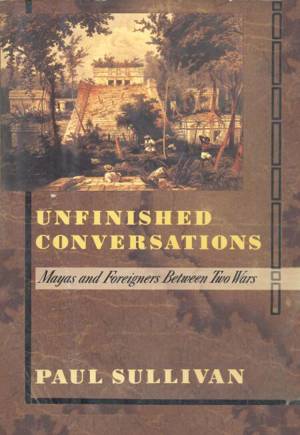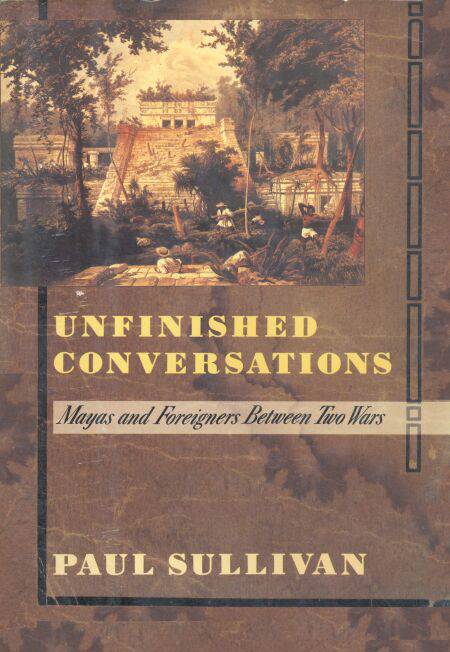
- Retrait gratuit dans votre magasin Club
- 7.000.000 titres dans notre catalogue
- Payer en toute sécurité
- Toujours un magasin près de chez vous
- Retrait gratuit dans votre magasin Club
- 7.000.0000 titres dans notre catalogue
- Payer en toute sécurité
- Toujours un magasin près de chez vous
17,96 €
+ 17 points
Description
A century ago, European and North American archaeologists first came upon the extraordinary ruins of Chichen Itza and Tulum—and started to converse with the Mayas who inhabited the forests of the Yucatan. In this thought-provoking history of a century-long "unfinished conversation" between the indigenous Indians and the white intruders, paul Sullivan shows how each party to the dialogue shaped the cross-cultural encounters to their own ends.
North American anthropologists preferred to see the Mayas as a primitive people and studied them, they claimed, with scientific neutrality. Yet the anthropologists hid their real intentions and lied to the Mayas, pretending to be chicle dealers or explorers, and they also (in certain important cases) worked for the United States government as covert intelligence agents. Similarly, the Mayas had their own hidden agendas—wanting guns and money from the Americans to fight the central Mexican government—and consequently charged the Americans for the tribal lore and religious secrets they imparted.
Sullivan asks us to view the history of Western-Maya dialogue as a Maya would—setting the prophecies of his ancestors, the advice of his grandparents, and the events of last week in a long continuum that extends way into the future and can foretell the end of the world. By taking this view, once can see how this particular Central American people has constituted a new life, a new past, and a new future out of the ruins of great suffering and defeat.
This surprising, moving, and intellectually stimulating book will remind us how even actions initiated with the best intentions can be perverted when tested by the realities of political violence, acute dependency, mutual ignorance, and fear.
North American anthropologists preferred to see the Mayas as a primitive people and studied them, they claimed, with scientific neutrality. Yet the anthropologists hid their real intentions and lied to the Mayas, pretending to be chicle dealers or explorers, and they also (in certain important cases) worked for the United States government as covert intelligence agents. Similarly, the Mayas had their own hidden agendas—wanting guns and money from the Americans to fight the central Mexican government—and consequently charged the Americans for the tribal lore and religious secrets they imparted.
Sullivan asks us to view the history of Western-Maya dialogue as a Maya would—setting the prophecies of his ancestors, the advice of his grandparents, and the events of last week in a long continuum that extends way into the future and can foretell the end of the world. By taking this view, once can see how this particular Central American people has constituted a new life, a new past, and a new future out of the ruins of great suffering and defeat.
This surprising, moving, and intellectually stimulating book will remind us how even actions initiated with the best intentions can be perverted when tested by the realities of political violence, acute dependency, mutual ignorance, and fear.
Spécifications
Parties prenantes
- Auteur(s) :
- Editeur:
Contenu
- Nombre de pages :
- 269
- Langue:
- Anglais
Caractéristiques
- EAN:
- 9781101874578
- Date de parution :
- 05-08-14
- Format:
- Ebook
- Protection digitale:
- Adobe DRM
- Format numérique:
- ePub

Les avis
Nous publions uniquement les avis qui respectent les conditions requises. Consultez nos conditions pour les avis.






